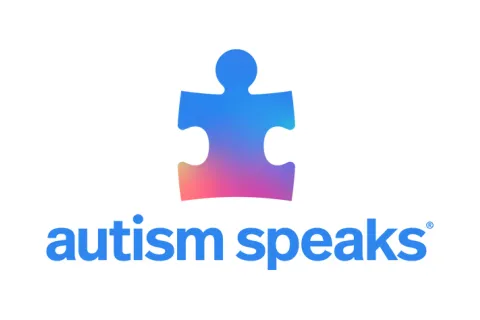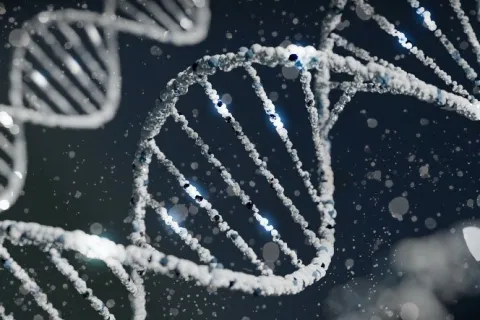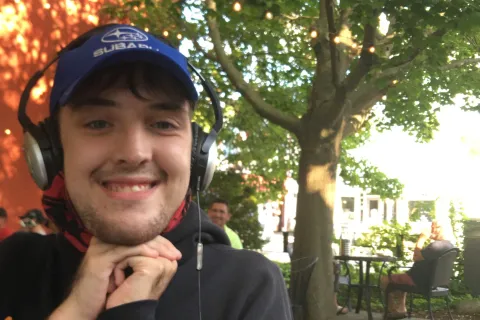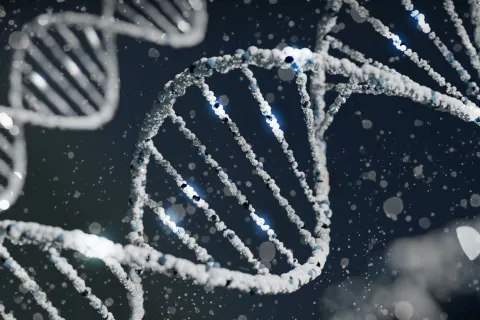Autism Speaks MSSNG database provides data for world’s largest autism whole-genome sequencing study, revealing 134 autism-linked genes
The study, led by SickKids, sequences the entire genomes of more than 11,000 individuals, offering new insights into the genetics that underlie autism spectrum disorder.
November 17, 2022Autism Speaks MSSNG database, the world’s largest autism whole-genome dataset, recently provided researchers from The Hospital for Sick Children (SickKids) with access to thousands of sequenced genomes, allowing them to uncover new genes and genetic changes associated with autism spectrum disorder (ASD) in the largest autism whole-genome sequencing (WGS) analysis to date. The findings offer a better understanding into the ‘genomic architecture’ that underlies autism.
The study, recently published in Cell, used whole-genome sequencing to examine the entire genomes of over 7,000 individuals with autism as well as an additional 13,000 siblings and family members. The team found 134 genes linked with ASD and discovered a range of genetic changes, most notably gene copy number variations (CNVs), likely to be associated with autism, including ASD-associated rare variants in about 14% of participants with autism.
“We are excited to see this advanced genomic data emerge from the MSSNG database. This information will help us understand the heterogeneity of autism and guide us in developing personalized healthcare that improves quality of life for autistic individuals and their families,” said Dr. Dean M. Hartley, senior director of genomic discovery and translational science at Autism Speaks. “We thank the families and our supporters who were willing to share their data and create the MSSNG database to help the autism community.”
The study’s authors have further noted that the use of WGS allowed researchers to uncover variant types that would not have otherwise been detectable. These variant types include complex rearrangements of DNA, as well as tandem repeat expansions, a finding supported by recent SickKids research on the link between autism and DNA segments that are repeated many times. The role of the maternally inherited mitochondrial DNA was also examined in the study and found to account for 2% of autism.
The SickKids research team says the study data can help expand inquiries into the range of variants that might be linked to ASD, as well as efforts to better understand contributors to the 85% of autistic individuals for which the genetic cause remains unresolved.
Autism Speaks is proud of MSSNG’s role in delivering key insights that enable collaboration and responsible sharing with leaders in the research space. The SickKids study leverages MSSNG’s capabilities to foster a deeper understanding of autism and pave the way for better diagnostics, as well as personalized and more accurate interventions, and importantly provide information to individuals and families to make more informed decisions about their health.
About Autism Speaks
Autism Speaks is dedicated to promoting solutions, across the spectrum and throughout the life span, for the needs of individuals with autism and their families. We do this through advocacy and support; increasing understanding and acceptance of autism spectrum disorder; and advancing research into causes and better interventions for autism spectrum disorder and related conditions. To find resources, join an event or make a donation, go to www.AutismSpeaks.org. Learn more by following @AutismSpeaks on Facebook, Twitter, Instagram and LinkedIn.
About MSSNG
MSSNG is a collaboration between Autism Speaks, Verily, DNAstack, Hospital for Sick Children (SickKids) and the research community to create the world’s largest whole genome sequencing database on autism with deep phenotyping. MSSNG’s goal is to provide the best resources to enable the identification of many subtypes of autism, which may lead to better diagnostics, as well as personalized and more accurate interventions. The MSSNG database intends to make its data as useful and widely accessible to approved researchers, including access to local compute and storage resources, and providing genomic exploration tools for standard and custom analyses. MSSNG’s philosophy is to promote and enable open science research with responsible sharing to lead to a better understanding of autism. Autism Speaks does not approve of eugenics in its genomic programs. Learn more at research.mss.ng/







